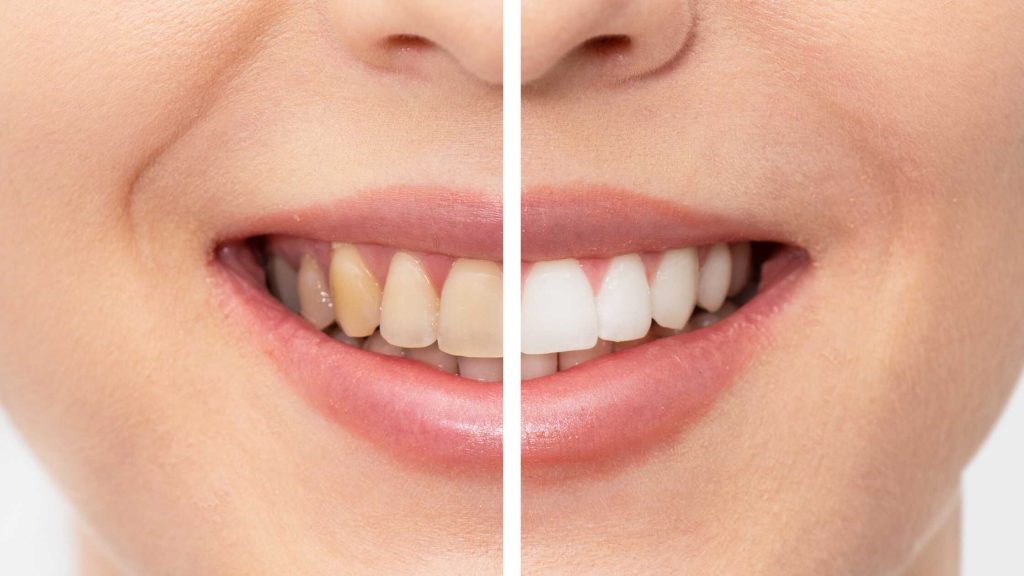Teeth Fall Out After Deep Cleaning
For your teeth to remain strong and healthy requires maintaining appropriate dental hygiene. Essential Oral hygiene practices which aid in maintaining better oral health include flossing, brushing, and regular dental checkups. However, plaque and tartar can still build up on your teeth and cause gum disease, despite your best efforts to brush and clean them regularly.
What is deep-teeth cleaning?
Your dentist might advise scaling and root planing, a deep-teeth cleaning technique if you have been diagnosed with gum disease. Gum disease is caused by bacteria that form plaque on teeth and gums.
Types of Gum Diseases
Gum disease is classified into two stages
- Gingivitis
- Periodontitis
Gingivitis is the earliest stage and is characterized by inflammation of the gums. If left untreated, gingivitis can progress to periodontitis, which involves damage to the supporting structures of the teeth, including the gums, bone, and ligaments that hold the teeth in place.
How are they treated?
Deep teeth cleaning is the treatment of choice for periodontitis. During a deep cleaning, the dentist or dental hygienist will use special tools to remove plaque and tartar from the teeth and gums, both above and below the gum line. They will also smooth out rough spots on the roots of the teeth, which can help prevent food impaction and bacteria from accumulating in the future.
Common side effects
As with any medical procedure, there are some risks associated with deep teeth cleaning. These risks/ side effects include:
SENSITIVITY
Post-procedure, you may experience some sensitivity to hot and cold temperatures. This usually goes away within a few days.
BLEEDING
You may experience some bleeding during and after the procedure, especially if your gums are inflamed. This is normal and should stop within a few days.
GUM RECESSION
After the calculus is removed, the gums appear to recede, which looks very prominent as it is hidden behind the tartar buildup. As mentioned earlier, deep cleaning can cause some temporary gum recession. However, this is usually minor and does not cause any long-term damage.
INFECTION
While rare, there is a small risk of infection following deep teeth cleaning. Contact your dentist immediately if you experience any signs of infection, such as fever or swelling.
Ways to reduce side effects
After deep teeth cleaning, you must contact your dentist immediately if you feel tooth sensitivity or loss. To reduce the sensitivity, your dentist can advise using a fluoride rinse or a desensitizing toothpaste. Dentists may suggest you see a periodontist who can treat gum-related diseases if your teeth have become loose. Your oral health can be significantly improved with proper dental care and good oral hygiene, eventually minimizing the risk of dental problems. Your dentist will brief you on how to take care of your oral hygiene after the procedure and also manage any side effects after the procedures.
How to prevent gum disease
While deep teeth cleaning is an effective treatment for gum disease, prevention is always the best approach. Here are some tips for preventing gum disease
- Brush your teeth twice a day with fluoride toothpaste.
- Floss at least once daily to remove plaque and food particles between your teeth.
- Use an antiseptic mouthwash to kill bacteria.
- Eat a healthy diet rich in fruits and vegetables and low in sugar and processed foods.
- Avoid tobacco products, as smoking and chewing tobacco can increase your risk of gum
disease. - Visit your dentist regularly for cleanings and checkups. Your dentist can detect gum
- Disease early and provide treatment before it progresses to a more severe stage.
Should you get your teeth deep cleaned?
Whether or not you should get your teeth deep cleaned depends on your dental health. If you have mild gingivitis, regular cleaning, and improved oral hygiene habits may be sufficient to treat . However, if you have periodontitis, scaling may be necessary to prevent further damage to your teeth and gums. Your dentist can assess your dental health and decide whether you need deep teeth cleaning. Following your dentist’s recommendations and maintaining good oral hygiene habits are essential to prevent gum disease and other dental problems.
Conclusion
Deep teeth cleaning is a dental procedure that can successfully treat gum disease by removing plaque and tartar buildup on the teeth and roots. While tooth sensitivity is a common short-term side effect, tooth loss is a rare but possible complication in certain circumstances, such as severe gum recession. However, proper oral hygiene practices and timely treatment can minimize the risk of dental problems. It is crucial to contact your dentist if you experience any sensitivity or loss after the procedure, and they can guide how to manage any discomfort. At MyLife Smiles Dental Clinic, patients can receive comfortable and effective techniques with education on post-procedure care.
Services at My Lifesmiles Dental Clinic
We aim to make deep teeth cleaning procedures comfortable and practical for our patients atour clinic. We make sure to also educate our patients about the process, which can help the patient in managing any post-procedure discomfort. Visit us at My Life Smiles Dental Clinic in Richardson, TX, to get your teeth professionally cleaned. Your health is our top priority





